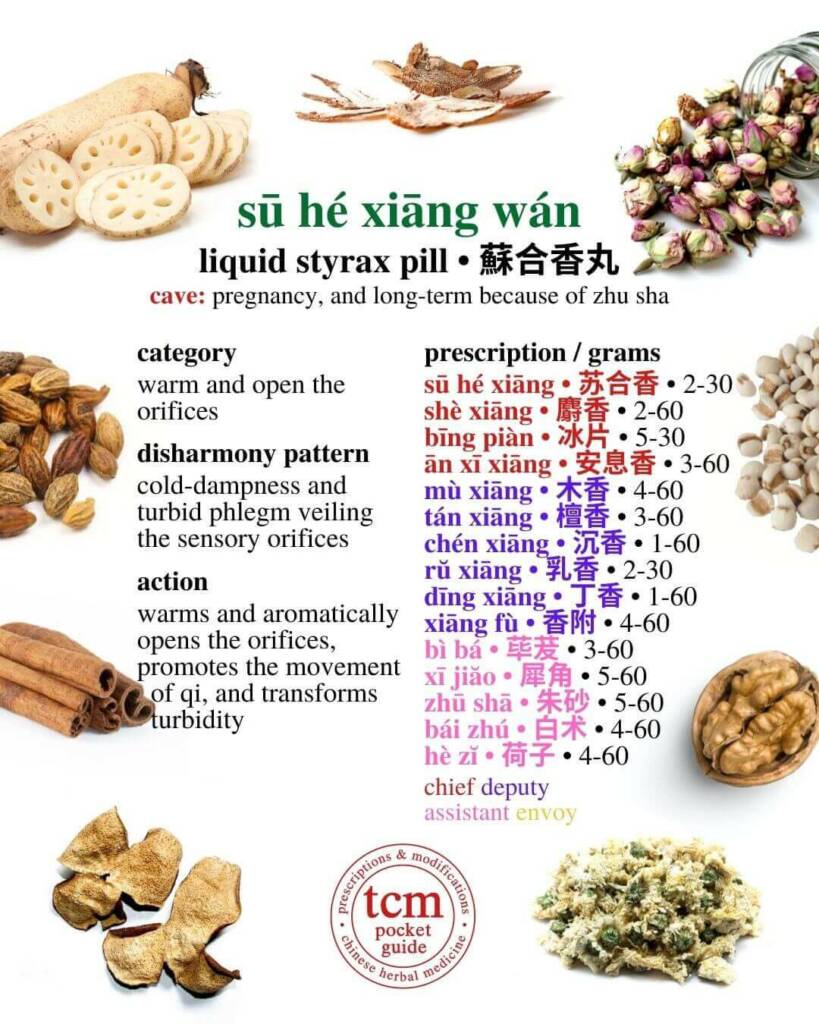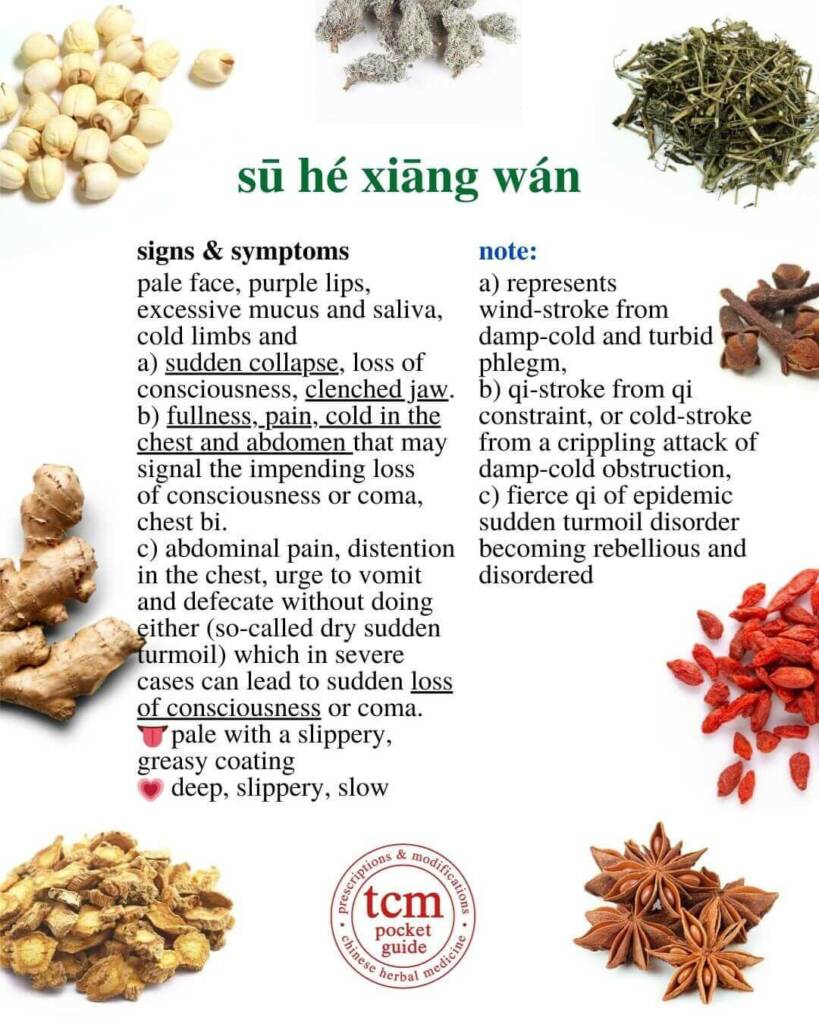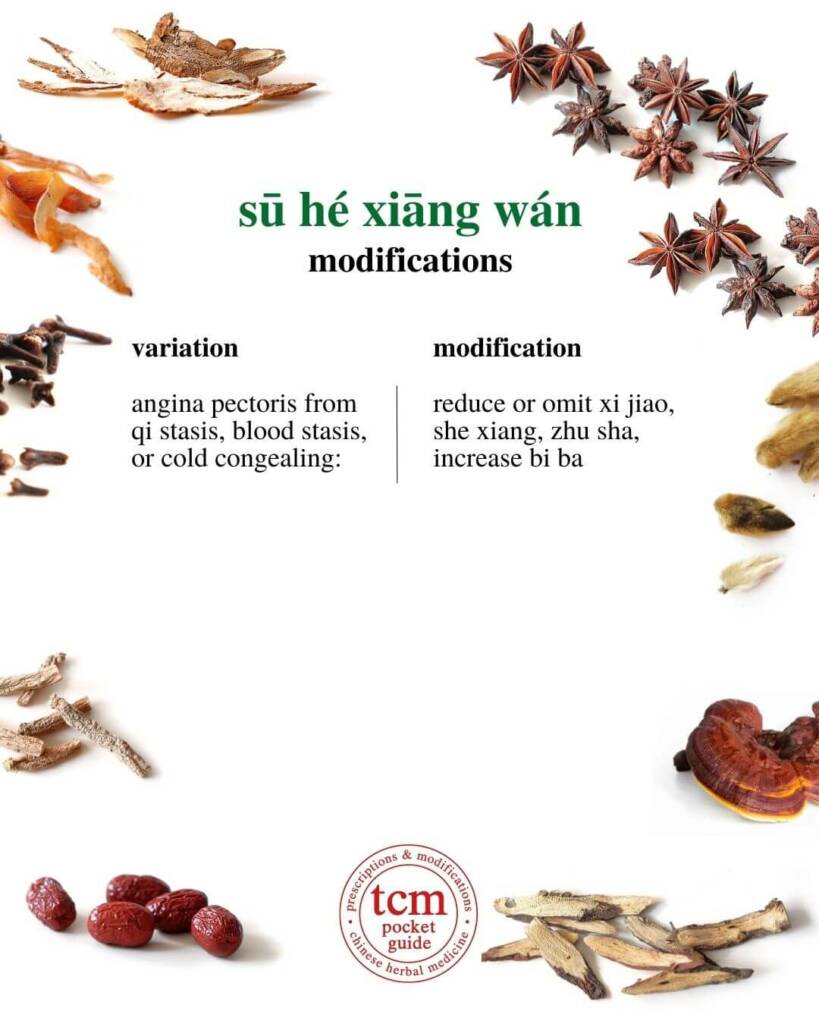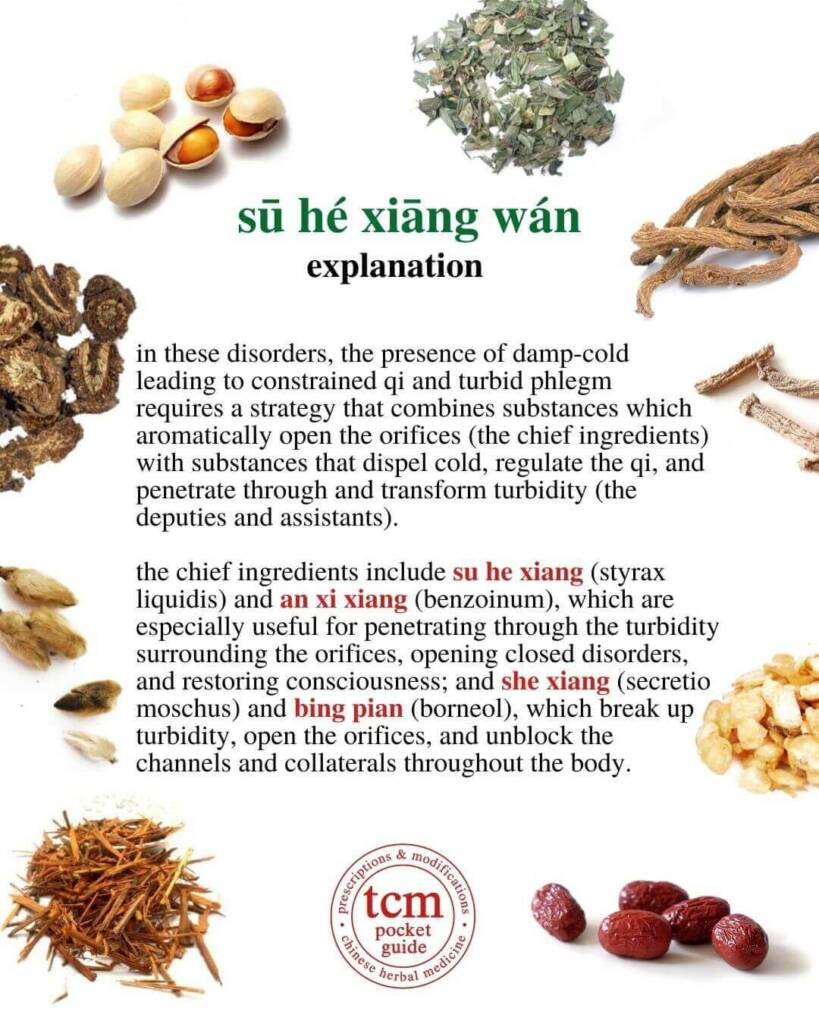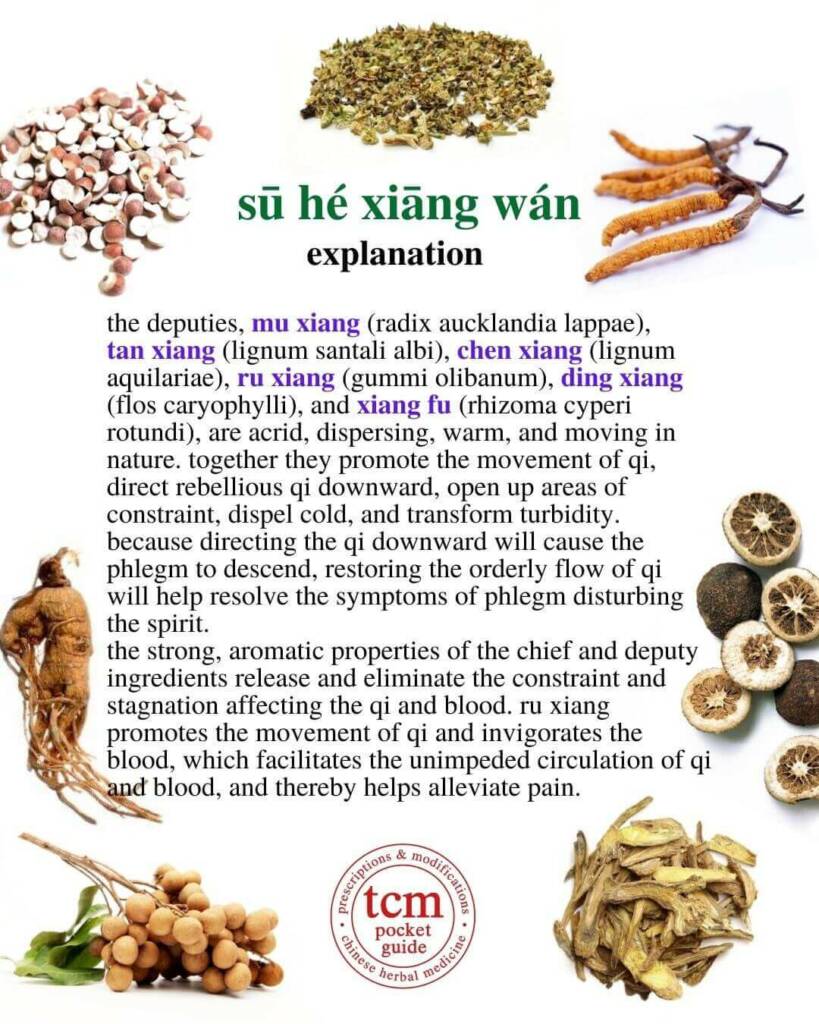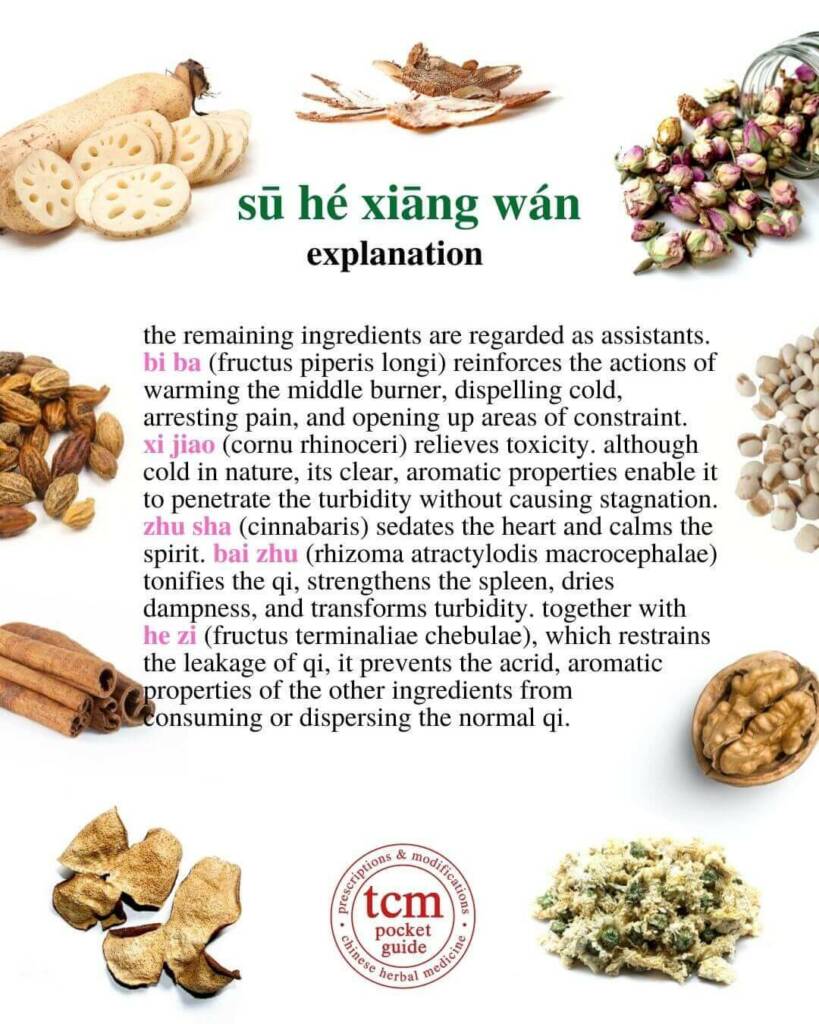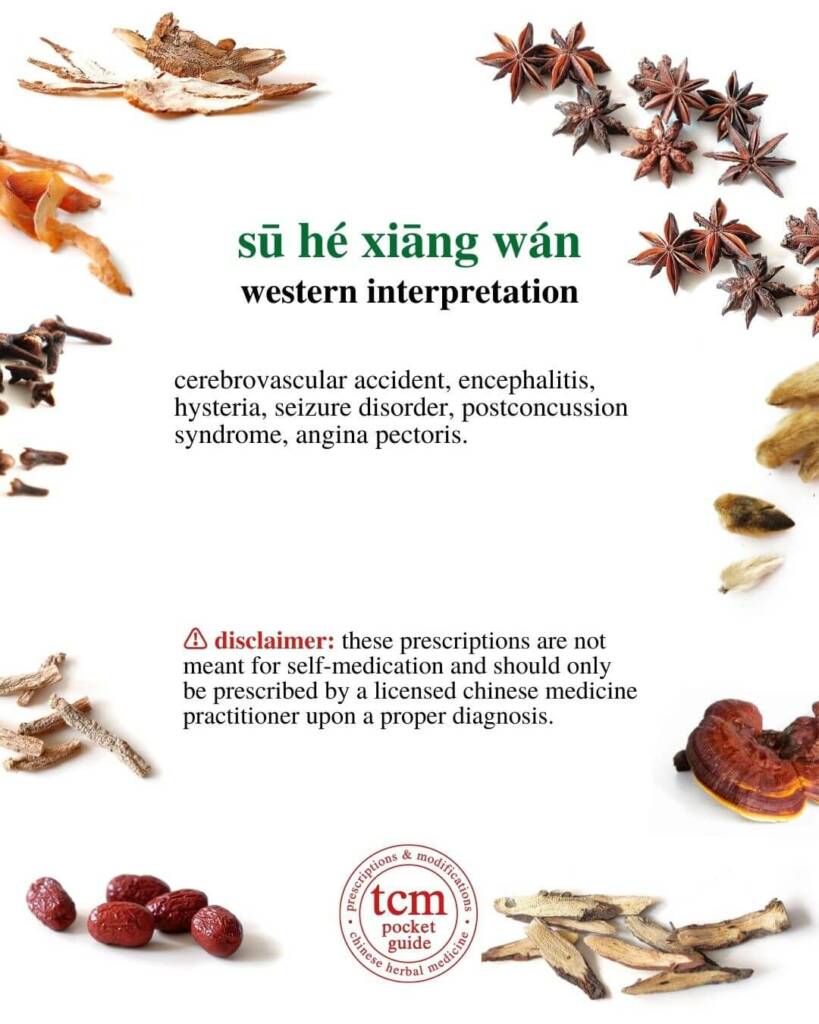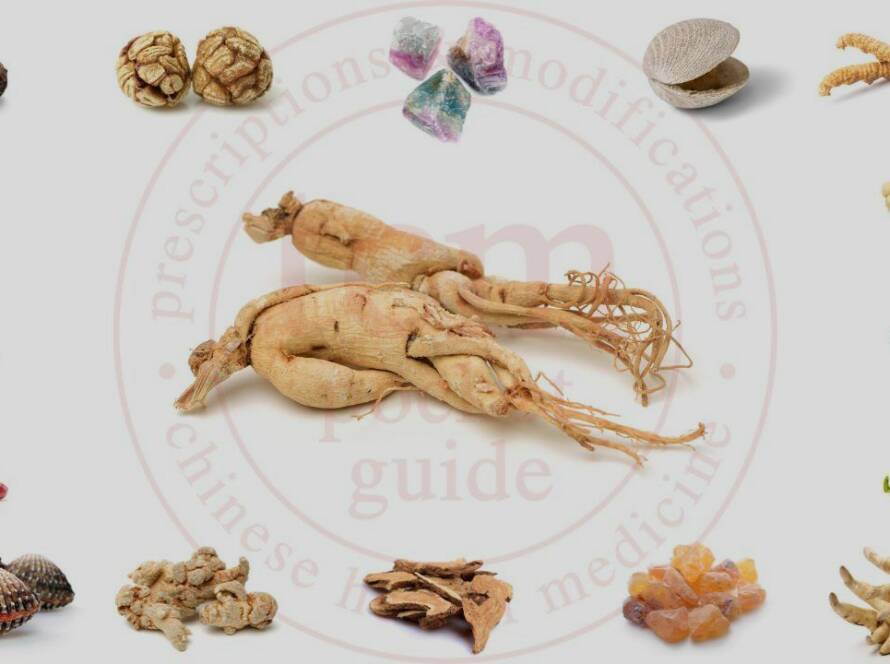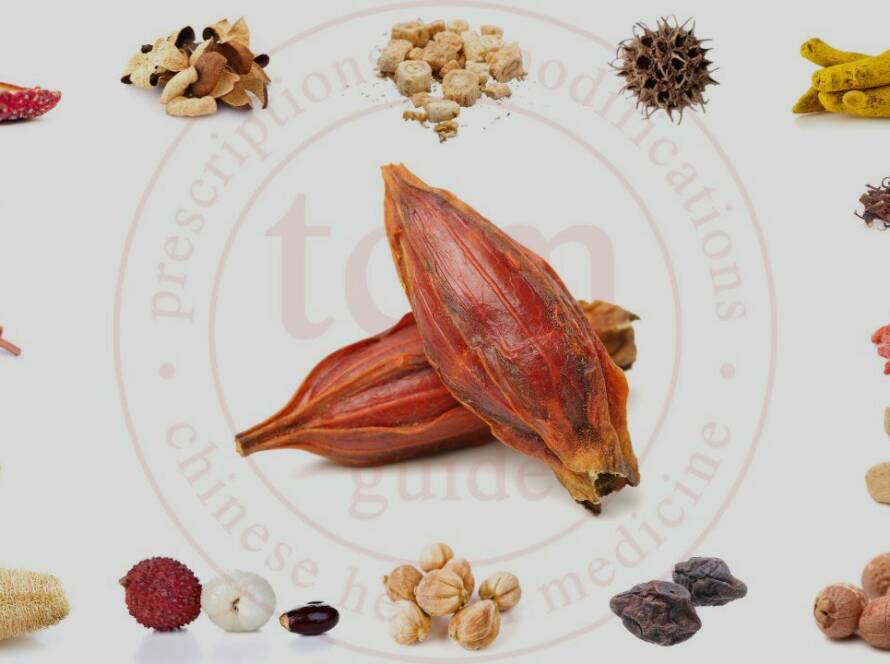sū hé xiāng wán is used for patterns with
cold-dampness and turbid phlegm veiling the sensory orifices, wind-stroke due to phlegm obstructing the heart orifices (tense type, yin obstruction), qi stroke or cold stroke, dry sudden turmoil disorder, painful obstruction of the chest due to qi stagnation, congealing due to cold, turbid phlegm obstructing the channels and collaterals.
symptoms indicating the use of sū hé xiāng wán
sudden collapse, loss of consciousness, coma, clenched jaws, fullness, extreme pain, and a cold sensation in the chest and abdomen, purple or blue lips, an urge to vomit and defecate without doing either, abdominal pain with chest distention, mental upset, paraphasia, diarrhea, vomiting, excessive mucus and saliva, breath cold, pale complexion, cold extremities, staring eyes.
western interpretation of sū hé xiāng wán
cerebrovascular accident, encephalitis, hysteria, seizure disorder, postconcussion syndrome, angina pectoris.
explanation of the mechanism
this is a closed disorder from phlegm-heat. it is usually associated with summerheat-stroke, wind-stroke, or the advanced stage of a warm-febrile disease when heat sinks into the pericardium and turbid phlegm veils the orifices of the heart.
when heat sinks into the pericardium, it causes disorientation by disturbing the spirit, and gives rise to fever, irritability and restlessness, delirious speech, or impaired consciousness. the vigorous, blazing heat scorches the fluids and causes them to congeal into phlegm.
heat and phlegm accentuate each other and completely veil the orifices of the heart, further disturbing the spirit and impairing the consciousness. as the phlegm increases, the impairment of consciousness becomes even more severe with such manifestations as loss of consciousness or coma. phlegm also obstructs the pathways of qi and gives rise to copious sputum and rough breathing accompanied by raspy sounds due to sputum in the throat.
extreme heat may generate internal wind which manifests as spasms or convulsions. the tongue is the `sprout’ of the heart; when heat enters the heart and the nutritive level, the tongue becomes red or deep red. the foul, greasy, yellow tongue coating and slippery, rapid pulse are indicative of phlegm-heat.
(bensky & barolet)

created with love in switzerland 🇨🇭
feel free to share this content:


